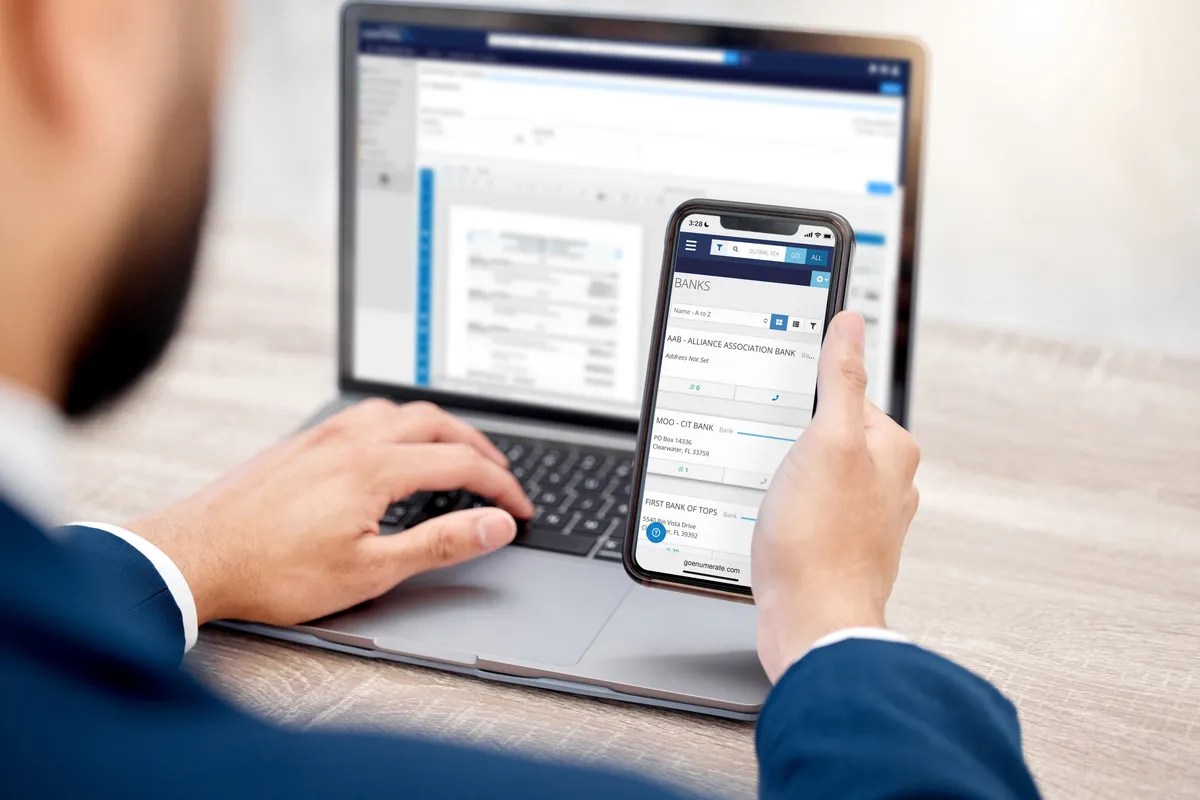Accounting might not be the most exciting part of running a property management company, but it’s the foundation of financial stability and community trust. Without accurate accounting, even the best-managed HOAs, COAs, and large-scale associations can face cash flow problems, compliance issues, and frustrated board members.
That’s why understanding the fundamentals of property management accounting— and using the right software to automate it—is crucial to staying competitive in today’s market.
Many property management companies are turning to software like Enumerate Central, designed specifically for community association accounting. It takes the complexity out of community association finances so your team can focus on growing communities instead of reconciling spreadsheets.
Why Accounting Matters for
Property Management Companies
Every dollar that flows in or out of a community needs to be tracked, categorized, and reported. Accounting helps you see exactly how each property is performing and whether your communities are financially healthy.
HOA Accounting Requirements Include:
- Paying maintenance vendors and contractors
- Recording and depositing homeowner payments
- Managing operating and reserve funds
- Preparing financial statements for boards and auditors
When done right, it gives you control over expenses, maximizes profits, and builds confidence with homeowners and board members alike.
But most property managers aren’t accountants, and that’s where modern accounting tools come in. Enumerate Central simplifies these core accounting tasks with automated workflows (from vendor payments and homeowner receipts to reserve fund management), ensuring every dollar is tracked accurately.
1. Accrual accounting
Accrual accounting records income and expenses when they’re earned or incurred, not when cash changes hands.
Example: If a plumber completes a repair in May, you record the expense in May—even if payment is made in June.
This method provides a more accurate picture of financial performance over time and is generally preferred for HOAs and PMCs.
2. Cash accounting
Cash accounting records transactions only when money actually moves. It’s simple and easier for smaller operations, but it doesn’t reflect future obligations or receivables.
Since everything is tracked when funds are received or paid, accounts payable (AP) and receivable (AR) aren’t included in financial statements under this method.
3. Bookkeeping and books
Bookkeeping once meant literally keeping the books—but today, it refers to using software to track every financial transaction.
A bookkeeper’s main responsibilities include:
- Recording daily transactions
- Posting debits and credits
- Reconciling accounts
- Maintaining general ledgers
Common accounting books include general journals, ledgers, and specialized records such as cash receipts, disbursements, and purchase journals.
4. General journal
A general journal is the chronological record of all financial transactions. Each entry includes the date, description, debit and credit amounts, and a reference number.
It’s an essential tool for reconciliation and preparing accurate reports.
5. General ledger
The general ledger is the master record of all financial activity, broken down by account. It shows how assets, liabilities, revenues, expenses, and equity change over time — making it the foundation of every community’s financial statements.
6. Chart of accounts (COA)
A chart of accounts organizes every account in your ledger into clear categories for tracking income and expenses.
Balance Sheet Accounts:
- Assets
- Liabilities
- Equity
Income Statement Accounts:
- Operating revenue
- Operating expenses
- Non-operating income
- Non-operating expenses
The key rule of accounting still applies: Revenue increases assets and equity, while expenses decrease them.
7. Debits and credits
Every transaction affects at least two accounts: debit and credit.
- Debits represent money coming into your business.
- Credits represent money going out.
Together, they must always balance, which ensures the integrity of your financial data.
8. Double-entry bookkeeping
Double-entry bookkeeping records each transaction twice—once as a debit and once as a credit—to maintain balance and accuracy. It’s the foundation of modern accounting systems and prevents costly errors.
Why Automation Makes it Easier
Manual accounting used to mean hours of data entry, paper ledgers, and complex reconciliations. Today, automation handles most of that work instantly and accurately.
With modern property management software, you can:
- Reconcile accounts automatically
- Generate real-time financial reports
- Streamline vendor payments and owner distributions
- Track community budgets in one place
Automation doesn’t just save time—it reduces human error, improves accuracy, and helps your team focus on strategy and resident satisfaction. Read more about how your HOA’s finances could be at risk here.
Simplify Accounting with Enumerate Central
The best accounting tools are secure, simple to use, and built by experts who understand property management inside and out.
Enumerate Central was built to help property management companies and self-managed associations automate financials, reduce errors, and build trust with every board.
Ready to bring clarity and confidence to your accounting process?
Request a free demo and see how Enumerate Central can simplify community accounting from start to finish.







